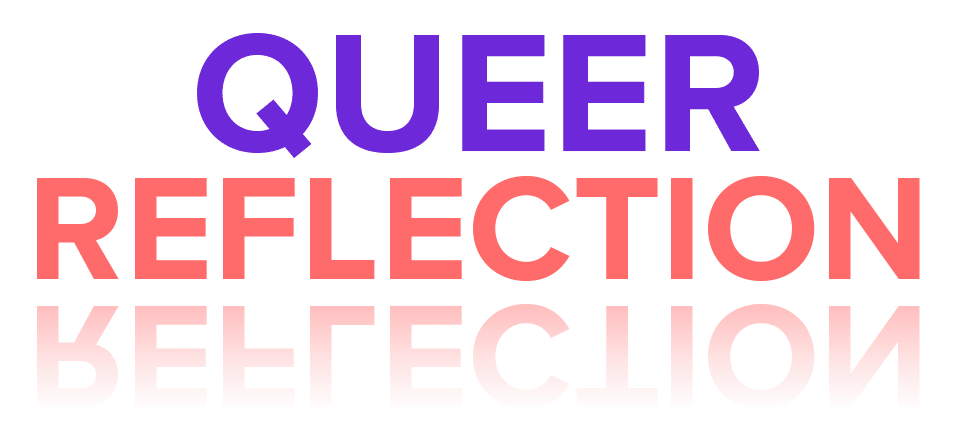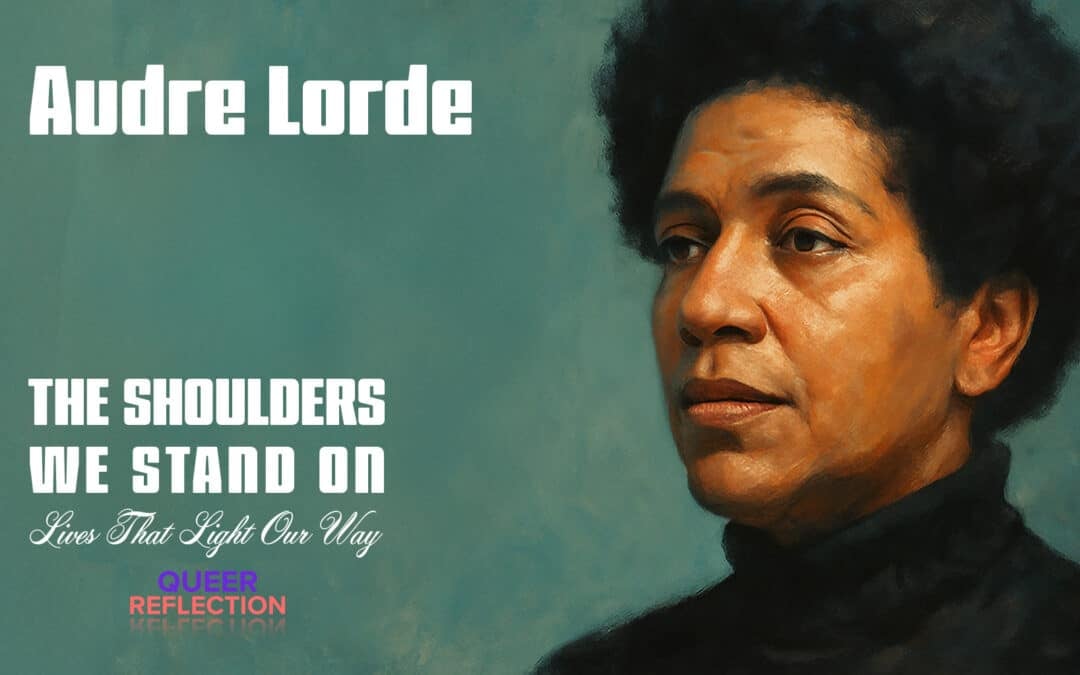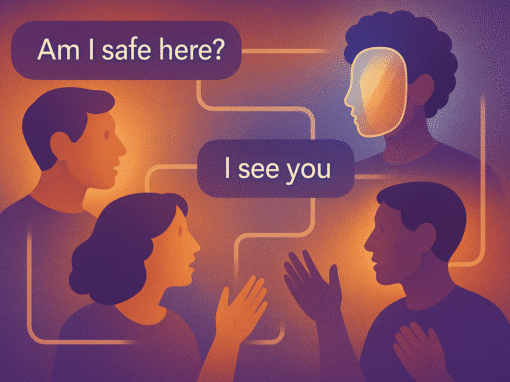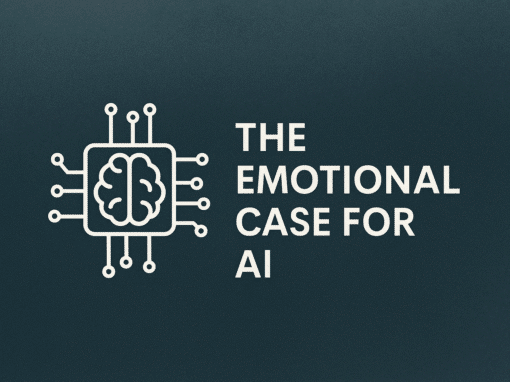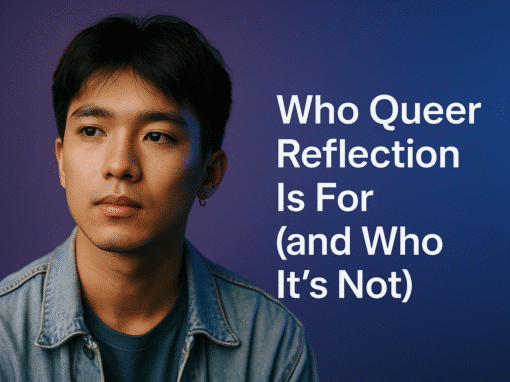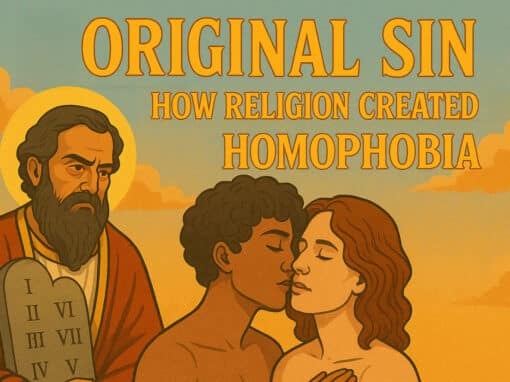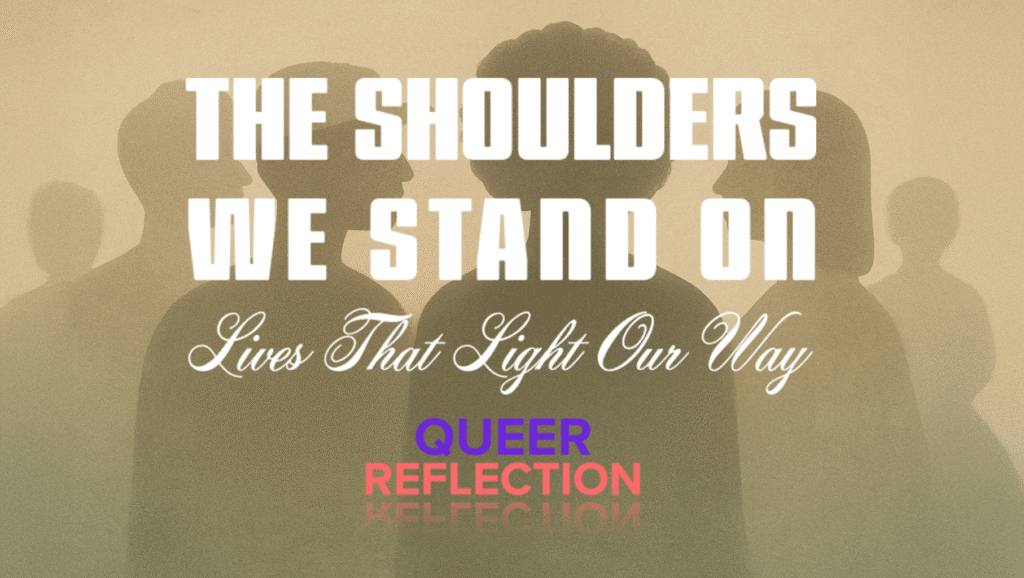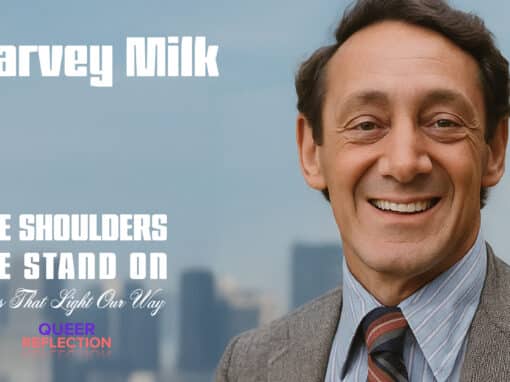“Your silence will not protect you.”
— Audre Lorde
Audre Lorde was many things: poet, activist, Black lesbian feminist, mother, warrior. But above all, she was a truth-teller. Her work remains some of the most vital and unflinching writing on race, gender, sexuality, and power—not because it asks politely for space, but because it takes that space with clarity and force.
Lorde understood that voice is survival. That silence, especially for the marginalized, is not safety. It is erasure.
In her now-famous 1977 speech, “The Transformation of Silence into Language and Action,” she named the emotional cost of withholding truth:
“I have come to believe over and over again that what is most important to me must be spoken, made verbal and shared, even at the risk of having it bruised or misunderstood.”
This is not just advice. It’s a survival strategy. And it is why her work belongs at the heart of Queer Reflection.
Speaking the Unspeakable
Born in 1934 to Caribbean immigrant parents, Audre Lorde grew up in Harlem, navigating a world that saw her as other at every intersection of her identity.
Her poetry was her first weapon against that invisibility. But her activism was where she built the battleground.
Through essays like “The Master’s Tools Will Never Dismantle the Master’s House” and books such as Sister Outsider, Lorde challenged feminist movements to reckon with their own racism, white supremacy, and exclusion. She made clear that any liberation that ignores difference is not liberation at all.
“It is not our differences that divide us. It is our inability to recognize, accept, and celebrate those differences.”
Silence as Complicity
Lorde’s work challenges all of us to ask:
Where am I silent?
Whose pain am I failing to witness?
What truth am I afraid to tell?
“What are the words you do not yet have? What do you need to say? What are the tyrannies you swallow day by day and attempt to make your own until you will sicken and die of them, still in silence?”
This is the heartbeat of what we’re building at Queer Reflection—a space where voice is practice, not posture. Where empathy means not only listening, but being willing to speak what is uncomfortable. Where emotional safety doesn’t mean silence. It means being heard.
Learn More About Audre Lorde:
- The Audre Lorde Project – a center for community organizing and radical action
- Sister Outsider: Essays and Speeches (Amazon)
- The Transformation of Silence into Language and Action (Full Text)
- Audre Lorde Biography at Poetry Foundation
Reflection Prompt:
Where have you mistaken silence for safety?
What truths in your own life still need to be spoken?
